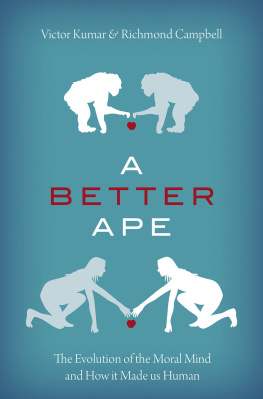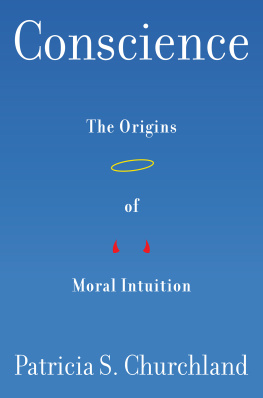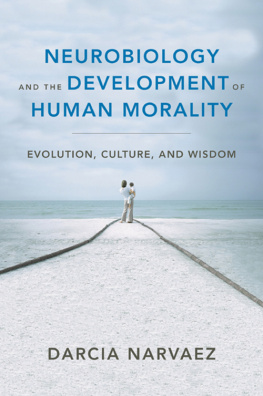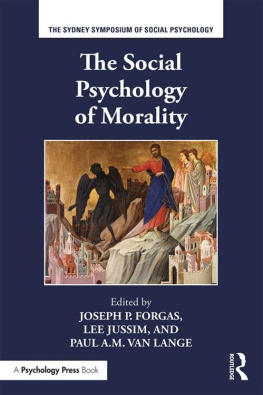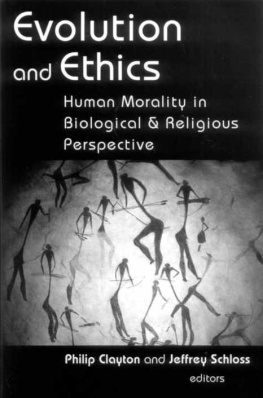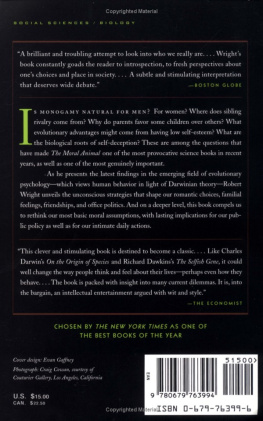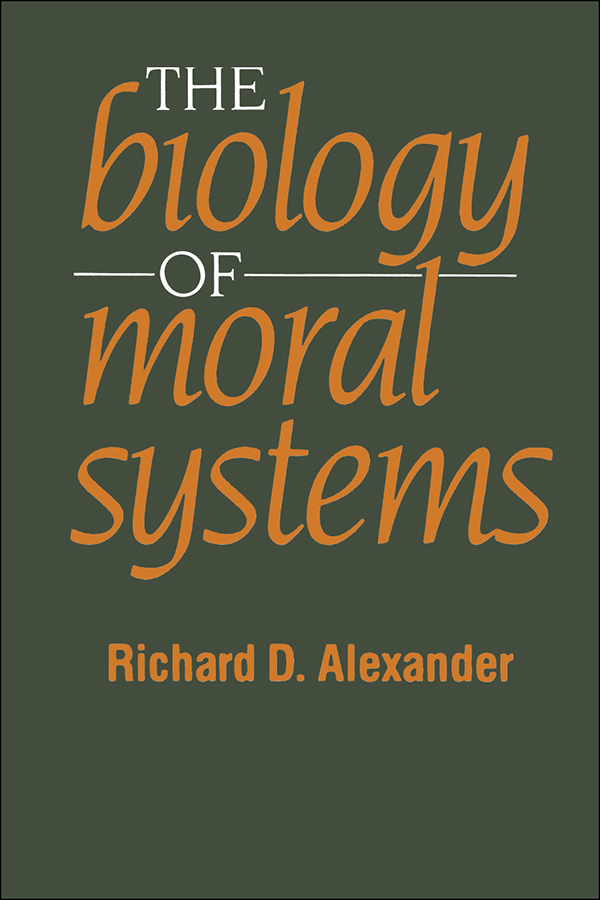Contents
The Biology of Moral Systems
The Biology of Moral Systems
Richard D. Alexander

First published 1987 by Transaction Publishers
Published 2017 by Routledge
2 Park Square, Milton Park, Abingdon, Oxon OX14 4RN
711 Third Avenue, New York, NY 10017, USA
Routledge is an imprint of the Taylor & Francis Group, an informa business
Copyright 1987 Richard D. Alexander.
All rights reserved. No part of this book may be reprinted or reproduced or utilised in any form or by any electronic, mechanical, or other means, now known or hereafter invented, including photocopying and recording, or in any information storage or retrieval system, without permission in writing from the publishers.
Notice:
Product or corporate names may be trademarks or registered trademarks, and are used only for identification and explanation without intent to infringe.
Library of Congress Catalog Number: 86-25897
Alexander, Richard D.
The biology of moral systems.
(Foundations of human behavior)
Bibliography: p.
Includes index.
1. Ethics. 2. BiologyMoral and ethical aspects. 3. Arms race Moral and ethical aspects. I. Title. II. Series.
BJ58.A43 1987 171'.7 86-25897
ISBN 0-202-01173-9 (lib. bdg.)
ISBN 0-202-01174-7 (pbk.)
ISBN 13: 978-0-202-01174-5 (pbk)
When a biologist publishes a treatise with a title like The Biology of the Amphibia, The Biology of the Mountain Bluebird, or The Biology of the Gene, he means "everything about the life and natural history" of the group or unit in question, as seen through the eyes of a biologist. That is precisely how the title of this book should be translated. I have tried to discuss everything about the life and natural history of moral systems, as seen through the eyes of a biologist.
Contents
To my children
And theirs
List of Illustrations
Figures
Tables
Thoughtful people seem increasingly to agree that our society indeed, world society as a wholehas entered into a crisis of unprecedented magnitude, and with potential consequences almost too horrible and irreversible to contemplate. This deepening crisis arises from the interaction of several contributing factors. First, is an accelerating technological alteration of the environment and, concomitantly, of our social structures and ourselves. Second, is an accelerating depletion of the worlds resources, and an accompanying interest among the more powerful nations in manipulating and competing over those less powerful who possess the scarce resources they need. Third, is an elaboration and proliferation of weapons now so terrible as to assure, for the first time in history, that almost no imaginable alternative is worse than their employment. Finally, coincident with the rise of weaponry, there has been an effective shrinking of the social brain that controls it. No matter how many millions of citizens may exist in a given nation-state, no matter how hideous its weaponry, the decision regarding use of that weaponry eventually comes down to about the same small number of individuals, or even to the calculations of a single brain. At least as a final step, it takes only one finger to push a button that could bring on what might aptly be termed the ultimate holocaust. Moreover, modern nations are now so large and complex that internal differences of interests and the possibilities for deception may allow small, special-interest groups to promote the international arms race at the cost of the rest of the society, and even of the world as a whole (including, ultimately, even if inadvertently, themselves). It may be appropriate to characterize the so-called great nations of the world today as the most enormous, most awesomely weaponed, smallest-brained dinosaurs of all time.
Even if I have exaggerated its seriousness (the growing public clamor suggests otherwise), the crisis is undeniable. Just as undeniably, the crisis arises out of our social activities: out of the nature and consequences of our personal and group interactions around the world; out of the nature and consequences of our beliefs, individual and collective, with respect to right and wrong; out of our attitudes and actions in the realm that we call ethics and morality, whether at international, national, local, or even family levels. Discords that bear strong resemblances to one another permeate the entire hierarchy of social organization, from the smallest social groups right through to the largest. These discords are invariably centered on moral and ethical enigmas. It is difficult to avoid the impression that some common problems underlie the solutions to all of them.
During 1977-1978, I participated in a series of conferences at the Hastings Institute in New York, charged with a search for the foundations of ethics. These conferences, which together with an earlier series gave rise to five published volumes (Engelhardt and Callahan, 1976-1980; Callahan and Engelhardt, 1981), were organized as a result of the flood of new ethical questions arising out of technology: abortion, euthanasia, the right to reject certain kinds of technological prolongation of life, etc. The Hastings Institute itself was organized for the same general reason, in 1969, and it has become widely known for its examination of the questions involving medical ethics and bioethics. More than anything else, the Hastings conferences set me to thinking and reading about the general background of human ideas about morality. I read all of the reports published by the Hastings Institute and entered the philosophical literature on the same topics. As a result, I began to puzzle over what I saw as an incompleteness or inconclusiveness, not only of the collection of Hastings reports and the discussions in the conferences in which I had participated, but, indeed, of all general arguments on ethics. I found myself sharing the attitude expressed by the philosopher, Alasdair MacIntyre (1981a), in a question in the title of his final paper in the Hastings Center conference series: A crisis in moral philosophy: Why is the search for the foundations of ethics so frustrating?
Even if quick and decisive solutions to ethical and moral problems are simply not possible, I find myself thinking that in all of the arguments something is missing. Indeed, I believe that something crucial has been missing from all of the great debates of history, among philosophers, politicians, theologians, and thinkers from other and diverse backgrounds, on the issues of morality, ethics, justice, right and wrong. Why have the greatest minds throughout history left such questions seemingly as unresolved as ever? Why is it that, as MacIntyre (1981b) put it, debates about morality apparently can find no terminus? Why should it be that, despite our most intense and sincere efforts, we are not really prepared to deal with the crises that our own activities bring about, even though we cannot but admit that they now have the potential, incredibly, to cause the destruction of life, or at least civilization, on our planet?
Part of the answer is that those who have tried to analyze morality have failed to treat the human traits that underlie moral behavior as outcomes of evolutionas outcomes of the process, dominated by natural selection, that forms the organizing principle of modern biology. This omission is not really the fault of those who have studied ethical and moral systems. The science of biology has been so vague about how to apply natural selection that not until the last two decades have biologists themselves been able to use it to analyze social systems.


